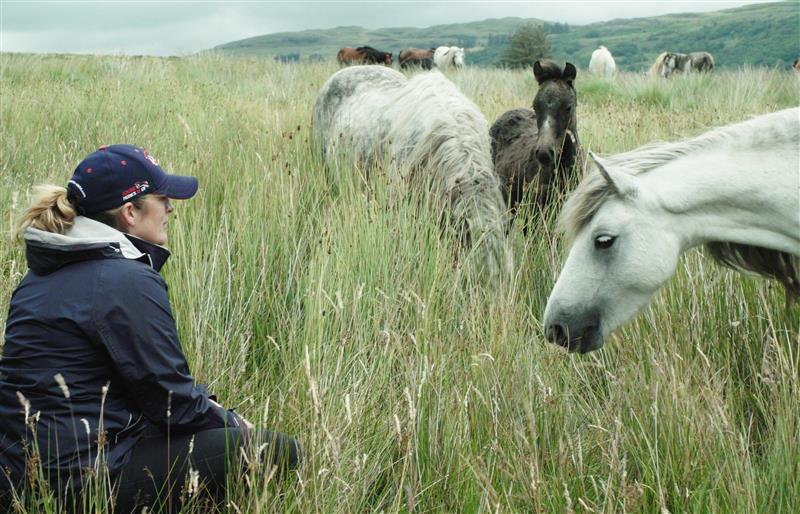The 5 domains model for animal welfare assessment aims to identify key areas that influence an animal’s ability to survive and thrive in their environment. It considers a range of internal and external factors.
The 5 domains model includes 4 physical/functional related areas: nutrition, environment, health and behaviour. Nutrition, environment and health are linked to internal pressures associated with survival, whereas behaviour can be influenced by external factors including the environment, other animals, and humans. Mental state relates to the ‘affective’ experience of an animal. In other words, how the horse is feeling and their emotional response to their situation.

Each of the physical/functional domains is linked to the mental state domain, with internal factors often driving behaviours and the resulting mental state of an animal. For example, an internal factor such as thirst will lead to water-seeking behaviours. If the animal can drink and quench their thirst, then they will remain in a positive mental state. However, if the animal does not find water, then they will fall into a negative mental state as they will not have satisfied their water-seeking behaviour and they will remain thirsty – a state that is unpleasant for us, and which we should assume is unpleasant for animals too.
Along with the 3Fs, the 5 domains can help underpin your horse’s daily management to ensure their species-specific needs are met.
- Managing physical health is one aspect of horse care, but equally as important is managing their mental state through meeting their nutritional, environmental, health and behavioural needs
- Their diet should be forage-based, with their environment providing ample foraging opportunities; any additional concentrate feed should be provided based on their individual needs, with many horses requiring only a vitamin and mineral balancer in addition to forage
- Horses should have access to clean, fresh water
- Horses should have social contact with other horses
- Turnout increases movement which is essential for horses’ physical and mental well-being
- Horses’ environment should provide shelter from extremes of weather such as temperatures below freezing, heavy rain and temperatures exceeding 25°C
- You should be able to recognise the signs of good and ill health
- Implementing an annual routine health care plan can help prevent ill health
- Horses that are in pain or discomfort show signs through their behaviour; you should be able to recognise these signs and be proactive in identifying any underlying causes of pain.
Using the 5 Domains to assess horse welfare

For more information our guide to assessing horse welfare using the 5 domains model contains:
- Explore each of the 5 domains
- Discover what we can learn from free-ranging horse populations
- Assess your horse’s management
This document was last updated in December 2023. The 5 domains model for animal welfare is under review and further changes may be made in future.
World Horse Welfare would like to thank Cristina Wilkins, who was involved in development of the 2020 model, for reviewing this page and featuring it as an additional resource for her online course, ‘Applying the Five Domains Model to the Welfare Assessment of Sport and Recreation Horses’. This course, which is open to all horse owners, helps learners to further their understanding of the Five Domains Model and to use it to assess – and potentially improve – their horses’ welfare.
For more information on the 5 domains model why not check out the What are the 5 Domains? episode in our video series, Horses Explained.
Popular advice in Well-being essentials

The 3Fs – Friends, forage and freedom
Find out how you can meet your horse’s fundamental needs using the 3Fs

Horse health essentials
Check out our essential top 10 health considerations to keep your horse happy and healthy
Other advice categories
All webinar categories:
Call our Advice Line
+44 (0)1953 497 238Not found the advice or answer you were looking for here? Then our Advice Line is available during office hours, or you can email us on [email protected] to let us know what topics you were looking for.


